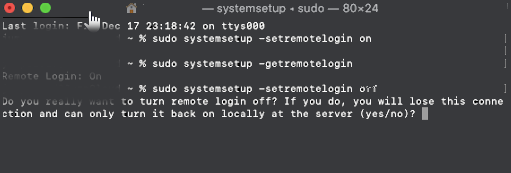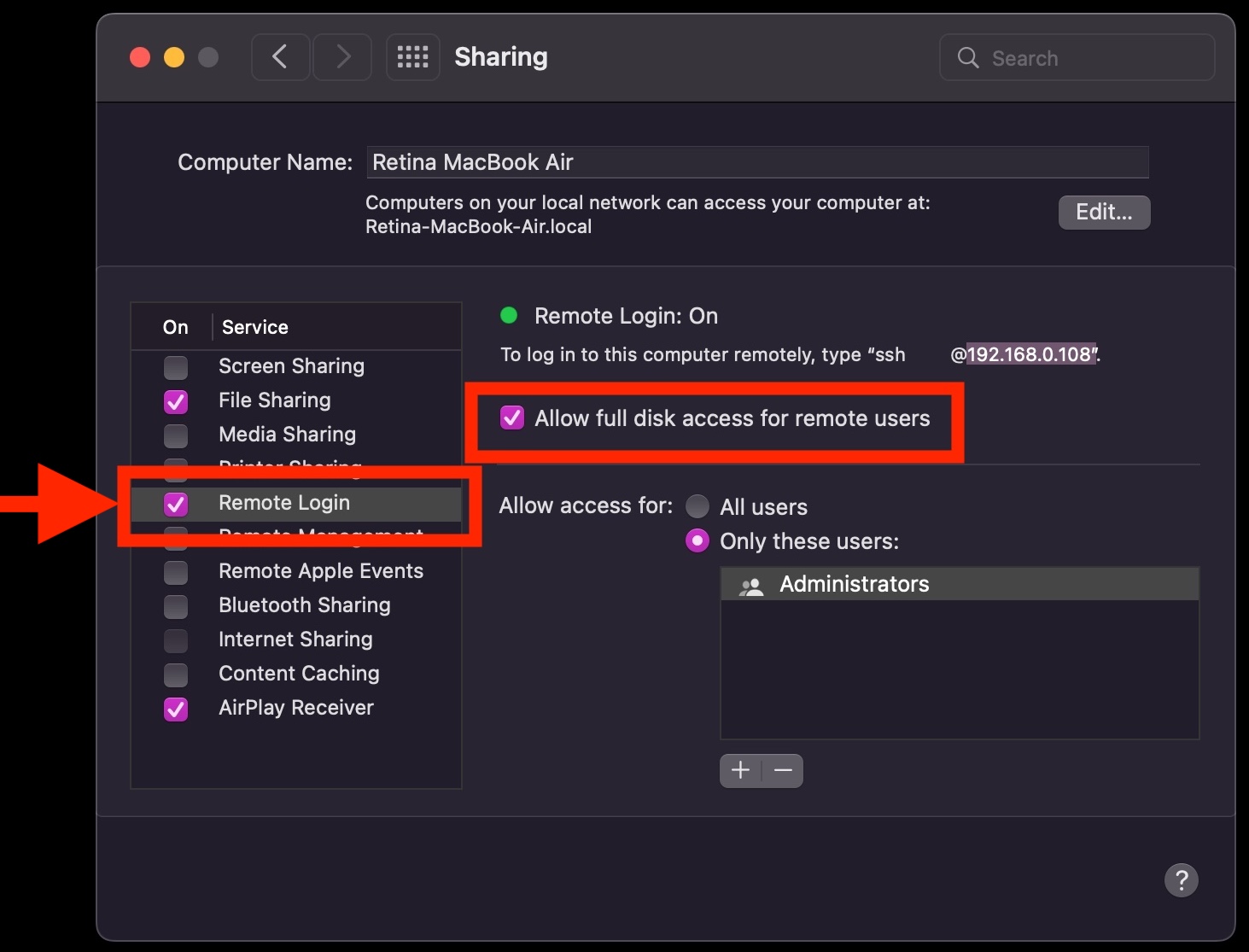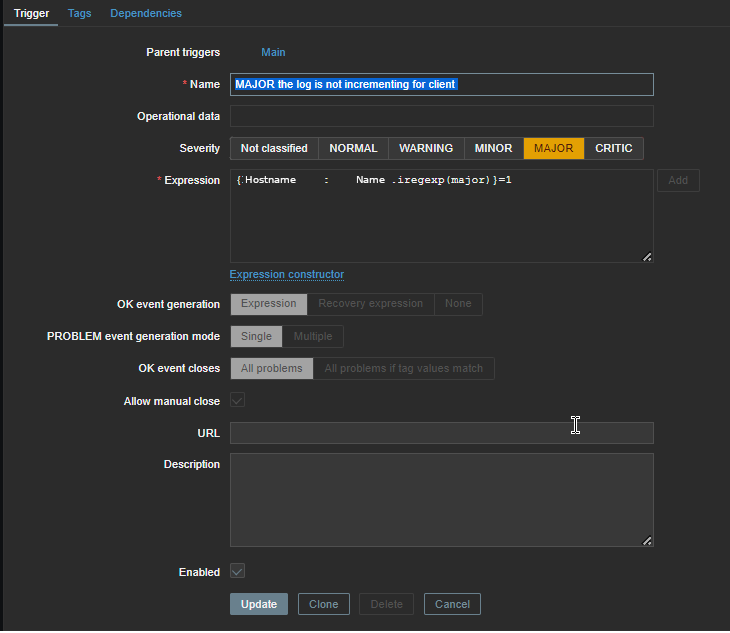
1. Back in the normal computer old Sys Admin days before the new Age of Computing (the Cloud HELL)
I've been in the system (server) administration business for more than 15 years. We started as kids dreaming about managing big Data Centers having ultimate control over servers data and services and in a sense the beginning of the 2000s looked like the system adminsitration will be among the most promising and profitable professions for the coming 30 years or so.
The amount of servers installed were booming, the Domain Registrantrant Ballon (Dot-Com Bubble) and the appearing need for everyone to have and run a website with the connected hardware and software (OS) needs made the sysadmin of the time like a precious asset for a company and business …
Many companies (small and mid-sized) still did not have a separate role for sys admin, but hired some crazy IT enthusiast that was doing a lot of the sysadm job for them.
It was wild years of freedom for the common IT specialist with a server software install / update / maintenance background.
The complexity level to install configure or tune for performance a (UNIX) like server be it GNU / Linux or FreeBSD or farm of servers was also high and there was little documentation than today and a lot of custom tweaks (scripts) to develop to make things working and system administration job was way more custom than today.
In other words the sys admin was a digital artist just like the UI / Web designer or the common programmer (who was way more advanced and hack, thought oriented) than todays "coders" most of which knows no damn thing but are a great Human Robots serving the functionos of ("Google Search for some ind of Programming language code" then "Copy" and "Paste" into a buggy module / script / application function) and then of course as a result you have a large clumsy (softwares) programs which eat a lot of Server resources (often crash – that's especially true for Java based applications) in the background and get respawned (which does severely load the servers CPUs / Memory) but as the end user is not aware of that it is considered a job finely done.

2. The IT Computing and SysAdmin / Programmer Jobs offered today
In other words nowadays computing is becoming a mess, just like a system is complicating it becomes more prone to failures, the same happens with modern informatics. The chaos of programming languages code and concepts (especially), the abstracts makes a programming code harder to debug than in the past (of course that depends on the programmer too), but as most programmers are totally lame and doesn't understand even basic Hardware / Electronics concepts but are more of a Code Monkeys (yes I can say today's programmers are not really a programmers but a CODE MONKEYS !).
The result for the avarage sys admin is that the developed software are less and less custom but written in a way (to just run it on a server) and usually the sys admin ends up with less and less options for modification or debug problems of the software. As the tendency of installable services / programs (I am talking about the proprietary ones) are becoming more and more monolithic of nature.
As a consequence that starts making the classical system administration as most of todays softwares can be installed even by a highly trained monkeys (no real sysadm needed) and even if you work as a sysadmin it is very likely you are not involved in interesting job but doing more and more routine and burecracy work (which is hell at least for me – as one of my primary motivators to start a career in the IT field and specifically in the field of System Administration that back in the day the system administrator used to be a more important person for a company as a whole company infrastructure depended on the work of that single Super Man that made possible the Internet Accessibility for office users, made possible Linux / Windows servers to operate fine with a bunch of websites and some crazy softwares and platforms, and even took a periodic maintenance of an Office Workers PCs, not to mention the responsibilities to do the frequent data backups, do a support functions (talk heavily on the phone with customers with issues etc.) and help programmers set-up their crazy testing environments (developed project code) on a testing servers etc.
It was the golden age of system administration … and perhaps a golden age for the ones involved in the field of Computing .. really …
3. What if you end up to be a Jobless System Administrator today? What does current sys admin Job Market Place look like?
Have you listened to Venom (black metal band) song – Welcome to Hell? … its like that ..
Yes, that's the worst nightmare for most of us sys admins , becoming jobless due to company bankruptcy, dismissal or just a desire for a rest for some time from the over active job to talk over the phone with uneasy and angry customers.
Al this put you you in a very harsh situation, because the Classical System Administartor jobs from the past such as building a Strong Company Firewall with IPTABLES or BSD PF is nowdays done by some pre-purchased router such as:
McAffee, Palo Alto, JuniperSRX 2020, Next Generation (firewall as a service such as Cato Networks), Kaspersky, Fortinet, (if you're lucky pfSense), Comodo Internet Security, Zone Alarm (the possible list of sh*t goes on and on …)
In other words businesses nowadays, prefer to buy a ready solution and most of this solutions even though being configurable, often have a weird interfaces and force the user to use a ready set of firewall rules (policies) rather than building ones from scratch … and most of the softwares can be configured by a normal non sysadmin anyways so mostly or soon the sysadm is not needed.
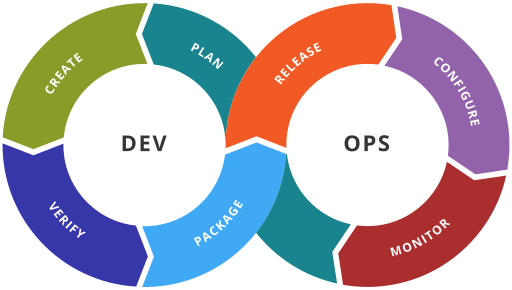
If in the past you have build things from source or deployed / configured things server by server and each of your servers as a consequence had its kind of own spirit, because of the many custom things placed on it, the current situation with sysadmin job are mass deployments of pre-bundled packages (DevOps – Development Operations – another crazy business non-sense buzzword that describes server scripting automation development) as a DevOps (SysAdmin) which is some kind of Hybdir between a programmer / scripter / db developer / and scripter you have to be eloquent or at least have some basic knowledge in mass deploy tools such as Docker, Ansible, Chef, Puppet, TeamCity, Bamboo, Fabric, Etc.
and to add even more hell to the hell, in most System Administration jobs you perhaps won't manage your own company data even but you will have to deal with third party vendors such as AWS Amazon or store the company important data in some external Cloud Storage service (except if you don't have the option to choose for a custom Own Cloud solution) …
But often this is not enough you have to be more or less aware or have some experience with some SRE (Site Reliability Engineering)
But wait, that's not enough you need to be also a good Team Player communicate to a good number of often lame burecrats / lame progammers / a manager over your head that usually does not know shit about technology / a project manager / some Database guys that oten have a very questionable knowledge in Database programming maintenance .. etc. … and the worst (in my humbe opinion) is that you have to spend 2, 3 as a mimumum daily in a non-sense meetings over proprietary non-free software program such as Skype For Business or Web Room meeting online such as WebEx with people that have little to know idea about technology or are presenting professionals but have a very questionable amount of knowledge in their field …
To summarize modern SysAdmin jobs, just like all other jobs are slavery but with the difference that in most common daily jobs most people have more freedom and are less dependent for their daily work, than you end up as a New Age of Computing Sys Admin.

Oh yeah and lets not forget the high amounts of STRESS you get daily as a sysadmin that for some is almost 24/7 especially for people who manage a large networks or server infrastructures. Suppose you migrate a Web services, database service, mail server, DNS record etc. and you make a minor mistake so the users can't access the service, guess who will be fired first ?! YOU !!! Even if you don't get hired, you'll be murmored and send for some kind of meaningless training just because you did a mistake (which is very normal, as every human daily days tons of mistakes) …
Another thing is if you're truely dedicated to system administration profession and you spend hours reading and learning new technologies (which in the field of system administration is inevitable) or just doing work from home as a freelancer to get some extra bucks and you don't have to actively sport (Running, Biking, Fitness, Mountaun Riding, whatver …), your Spinal problems and Herniated Discs (Neck or Waist) is to soon knock your door
and stay with you until your death bed.
But that's not all of the hurdles, many of the System Administrator like jobs of today require you to have an overview knowledge on Virtualization technologies such as VMWare ESX, VServer … and have a good idea about VPS management and even some employeers require a knowledge in Astrerisk IP PBX (Open Source Communiation Software) or other IP Telelphony software strangie …
Dear sysadmin collegues, my opinion is this kind of requirements are a little bit higher and almost impossible to match (or there are none to any living flesh) that attains all this knowledge or they will ever be.
… But even if you get employeed (and you tricked the HR interviee that you own the SuperMan + Batman + Robocop + You name your favourite movie superhero superpowers and went through the other interview (hell) circles) … finally you get hired and you end up often part of projects that are already seriously messed up from the start or developed in a way that even if succeed in a short term, guarantees a long term failure.
Oh the hirement process is also a lot of enjoyment for the burecracy freak, you have to fill in a number of documents, describing tons of information, provide tons of documents, certifications, talk a number of times on the phones with inadequate Human Resource representative (usually highly brainwashed ppl) "specialist" that knows shit about technology … Then you have to go to a few more selections, interviews further with a technical guy, fill in tests online (maybe not always) and finally talk to a company manager.
All above screening and selection I'm desribing of-course is featuring large corporations (which are among the little) that offers some decent sallaries like 1500 – 1800 EUR (for Eastern Europe) or 3000 – 3500 for rest of Western Europe (if you're a lucky American citizen you might earn up to 10 000 – 11 000 $).
The advantages of the large corporation besides the so-so sallary is the sense of security (that you want be jobless just next year or two from your day 1 in the company).
You can always become a sysadmin in a start-up company but finding such is also nowadays a real pain in the ass and even if you have a 12000+ unique a day visits site such as mine and you offer your sys admin skills for really cheap , you still will have troubles in finding clients / employeer for whom you can practice your skills and make a living as a SysAdmin.
That's pretty weird for me especially with the fact that everyone is tubing that more and more IT specialists are required ..
Anyways assuming you have the "luck" to get hired in a large corporation such as IBM you will have to do a very tedious job, such as either Backup with (IBM Data Protect), Veritas Backup, Barracuda Backup, HP Data Protector or similar software, only do build or deploy new servers, web services, databases or whatever else. E.g. your type of work is likely to be monotonоus and boring and will offer you not much than learning a little bit more about the technology you're already acquainted to ..
Moreover, because in modern IT, human freedom is not really respected … you either comply to the company brainwashing strategies a bulk shit procedures or you get fired, you either become a small wheel in the failing machine (here i mean most large companies you might end up hired nowdays reached its peak state are into a decline) and a logical result is living in constant fear that they might fire you end you might end up jobless or you stand up for what you're in the company and be careless about political correctnes and you quickly get inconvenient, politically incorrect (oh yes I forgot to mention this other craziness if you happen to be employeed you have to be politically correct) and do periodically a stupid exhausting Trainings (I prefer to call them a brainwashing session as most of the trainings are not teaching you anything but just wash your head to comply to shit). But if that Hell is not enough in the large corporation in order to look "normal" you have to partcipate in the Non-Sense Teambuildings, with team mates you have little to know affection (with the very same people you spend 5 days a week, now you have spend 1 /2 more day. every month or so …

So welcome to modern HELL OF system administration, or better to say welcome to the Cult of the large corporation businesses.
4. What are your options if you end up as a poor old school sys admin on the job market?
If you have a long history as a sys admin and computers become too boring for you like my case, you can always think about migrating to a Management position in the field of IT (this in most cases means doing nothing all day long pretending that you understand management and talking shit (laughing in a group), being present in a crazy management meeting whose essense is a shit talk all day long … with a bunch of people who facebook / youtube all day long talk about Latest Cars models and how they wish to have a half million car, watch and talk about fuzzy hand clocks, cheeks, plan their next vacation or where to have the lunch and housing (apartments) all day long (in some more extravagant cases you have some guys being wacky talking about drugs, sex and rock-and-roll.)
but the unpleasent surprise here is even as a Manager you will probably have to start working for a corporation and have the same depressing atmosphere of people standing in front of their computers (tailor like) all their long with the only difference you will have to speak more with a number of computer addict zoombies (left without much options) that are doing some monkey programming / coding or Services job day after …
Other option you have is to move out of the virtual business at all and get into a real works industry such as getting a Construction job (but believe me such transitions, though I heard of are too painful) and sooner or later you will get back to computing virtual business ..
I have a friend Jose Mathew, whose exit poll from the IT business was to graduate a 2 years post-university course to become a professional Chef (cook) in restaurant but after already few years employeed as a Cook, he is again considering getting back into the IT and paradoxically he wants to enter the niche of Network Administrator (which I forget to mention earlier in that article).
The Network Administrators are among lucky System Administartors job profiles because there job is depending nowadays mostly on their CCNA / CCNP certificate, there experience with network routers such as Juniper, LinkSys, Cisco, Avaya etc. But the big problem with being one of the guys is that the employment jobs offered are much less than the general Senior or Junior System Administrator (that is more free software Linux based).
The most luckly ones are the Windows System Administrators as the amount of such that are looked up on the market at the moment of writting this article is relatively high. The type of job for Win Sys Admin offered on the market as long as I researched is for Windows Sys Admins that have a good amount of experience / knowledge (with Active Directory) domain controller.
There might be some enjoyment for the Win SysAdmin if you have to develop your own PowerShell scripts or do some kind of automations on a domain controller level and from that perspective this job positions are attractive, but unfortunately that comes at the price for being a totally Microsoft software dependent (junkie).
But in overall it is much easier for the ordinary Win Sys Admin than the Unix one because of the reason Windows Servers and related scripting automation solutions is generally much easier to learn and many of the things you have to make up yourself on a common *NIX OS are already available in Windows in the form of some proprietary extra software you have to buy …
However for people as me who are involved in the UNIX world for the last 15 years, it want be easy to migrate to Windows System Administartor.
In my previous employment Job in Hewlett Packard (and later DXC) I have to do a lot of Windows System Administration jobs and I have to says, that was too easy in general but the downside of deploying some third party software on Windows in case of failure is the debugging on Windows is generally harder task than on Linux / BSD..
Another option if you want to move from the field of System Administarton is to start your own company in either Sys Admin or Programming field or Website building, Website hosting.
That's easy especially if you have a good amount of experience but the problem with this is you need a partner and often finding a partner is a tedious job …
Plus most of the clients you can get for your business are already clients of the Large Sharks corporations and at best you or your company might have to work as a contractor for the uncle SAM corporations ..
Of course as a sysadmin you can always repair computers and could try to start a business of computer (OS) repair niche, but as the competition in the field is enormous and you will have to work like crazy to be able to make a decent living, plus it is very likely that you bankrupt, because of lack of enough clients in need to fix their OS (as most people nowadays have learned on how to install Windows and basic surrounding softwares) …
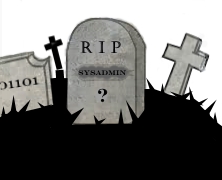
If you have land like my parents you can try to make a living by growing vegetables like Bio potatoes, cucumbers, tomatoes, cabbage, onions, garlic and other fruits such as Apples, Pears, Walnuts, Peaches etc.
The bio-fruits growing business though profitable in western societies is way from profitable in Eastern world so if you happen to be in some eastern country and you want to make good moving to the fruit growing / selling business might not make you rich but at least you will have benefits for your health because of the village / land work + you will have a little bit more independence and your mind will be much clearer. If you decide to try a physical work like this, your concentration level will improve as most IT industry people because of the long hours of computer madness jobs slowly start totally loose focus and often the stress of the Computer works impare memory ..
Another option for exit from System Administration industry if you have some little marketing experience or background is to move to become a Marketing or E-Marketing SEO specialist, that's not a bad option but the problem is still you will bundled in a permament marriage with the computer and the sallary you will get would most likely no different from the one you will get as a system administrator.
So just like any other Computer related job in order to keep in shape you either have to go Fitness 2 / 3 times a week or actively sport something, otherwise you might experience a growing decline in health over time (just like you already might have in sys admin field).
To sum up being a sysadmin is very enjoyable fun and bright profession, the only small problem is most true dedicated system administrators are know tend to suffer constant anxiety, hyper activity, have physical health issues, suffer forms of depressions or have mental issues (perhaps because of the inhuman amount of information they have to process daily and the large amounts of hard alcohol vodka, beer etc. 🙂 consumed as a mean of anti-depressant) …
But it seems other IT specialists I know such as programmers tend to often suffer similar problems. Besides that many of the people involved in sysadmin business or IT have troubles finding decent woman to marry, as they tend to become more or less anti-social (or gradually loose their ability for proper interactivion with human) because of the fact most of their life is being led in the virtual reality online.
But lets be optimistic, perhaps there are many sysadmins who have the luck to have started a normal life in a normal company and managed their life well with family and kids it is just I haven't met them yet 🙂
I know this post was quite a lot of rant and I would like to excuse anyone who was bored to read all this mess, but I felt obliged to share about this problem as the things are rushing through my mind for over a two years now and we had quite a discussions with friends / collegues on the realization that the system administration job is loosing its attractivity and that the new age of (cloud) computing is pushing computer science to move towards a bad and dark path which makes the individual both employee and user more dependant and less free …
